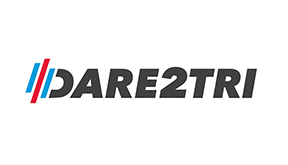
by Keri Serota, Dare2tri Executive Director
Dare2tri is an 8-year-old organization with the goal of enhancing the lives of individuals with physical disabilities and visual impairments by building confidence, community, and fitness through swimming, biking, and running. The organization started with very modest goals, serving 8-10 athletes, and has now grown to serving about 400 athletes annually. Having just completed a new strategic plan for the organization, we have even more aggressive growth plans on the horizon. Methods of growth that have worked for Dare2tri, include:
Be Predictable: We have consistently opened registration for our major camps on February 1. This date gives our staff structure on when they need to have things ready to go and allows the community and our athletes to know when they can expect to register. This is pretty far in advance for some of our summer events but it allows people to plan accordingly. We set all our major events, camps, and clinics well in advance, and are able to share ‘save the dates’ with our community many months in advance. For example, one of our camps always take place the second weekend of June. By being consistent with your big events, people can plan accordingly if they want to attend. This planning practice has helped us tremendously with recruitment efforts and communication.
Use Peer Mentors: Dare2tri has found great success in both formal and organic mentoring of athletes. Some of these mentorship relationships are very deliberate (eg. having more experienced athletes mentor newer/younger athletes), and others have happened more organically. Either way, this is a very valuable aspect of our programming. It allows us to extend our small staff to ensure newer participants have one-on-one attention and multiple ‘point people’ available to them.
Our staff and coaches are great at working with the athletes and addressing their needs, but sometimes having someone who looks like you, has been the ‘newbie,’ or stood in your shoes is comforting, helpful and adds another level of engagement. Dare2tri has used this type of mentoring not just for the athletes but for our volunteers as well. This has proven to be a very valuable way to engage new volunteers and ease their anxiety. It also gives a sense of power and ownership to the more seasoned volunteers.
Build Partnerships & Collaborate: You don’t have to go it alone! Don’t recreate the wheel – find those who can complement and support what you are doing and partner up. This allows you to share the workload, and have access to facilities, equipment, participants, and staff/coaches that you might not have otherwise. This can include partnerships with local park districts, disability-specific groups (eg. UCP, MDA, Spina Bifida Associations etc.), other adaptive sports organizations, local community groups (for us this included other able-bodied triathlon training groups and clubs), etc. Most people think of partnerships and collaborations in terms of funding, but this can be as valuable in networking with those who can support you or help you in reaching your target audience, etc.
Evaluate & Redesign: Honest feedback is worth its weight in gold. It can sometimes be hard to hear, but if you take it seriously and use it as a tool for improving it can be super valuable. Spend time with your staff, participants, and volunteers after every event to debrief. Figure out what went well, what did not, and what you might want to change for the future. Don’t be afraid to try something new. If it doesn’t work – that’s ok. Be open to suggestions and don’t just do something because it’s how it has always been done. Sometimes new perspectives are helpful and make you think twice about how you plan, execute, and deliver a program. Be sure to spend some time developing your post-event survey and data collection methods as you will need this not only to continue to improve your programming, but also for grant and funding reports.
Surround Yourself With the Best: I can’t stress this one enough. I am lucky that I am able to call my co-founders my best friends. There is no one else in the world I would want to be with on this journey. Find the best people you can to help you grow and develop your programs. Know your strengths and weaknesses and find folks who can complement your skill set. Every time there is turnover with a position, don’t simply rehire the exact same position. Take some time to see what roles you currently need filled and adjust and revamp as needed. Things are constantly evolving and what you needed two years ago might not be the role you need to fill now. Make sure people know their roles and responsibilities, especially in a small nonprofit where you are wearing multiple hats. Be there to support one another but also know what you are responsible for. Keep communication open and honest, and always remember why you are doing what you are doing.
To learn more about Dare2tri’s best program practices check out, www.dare2tri.org.


